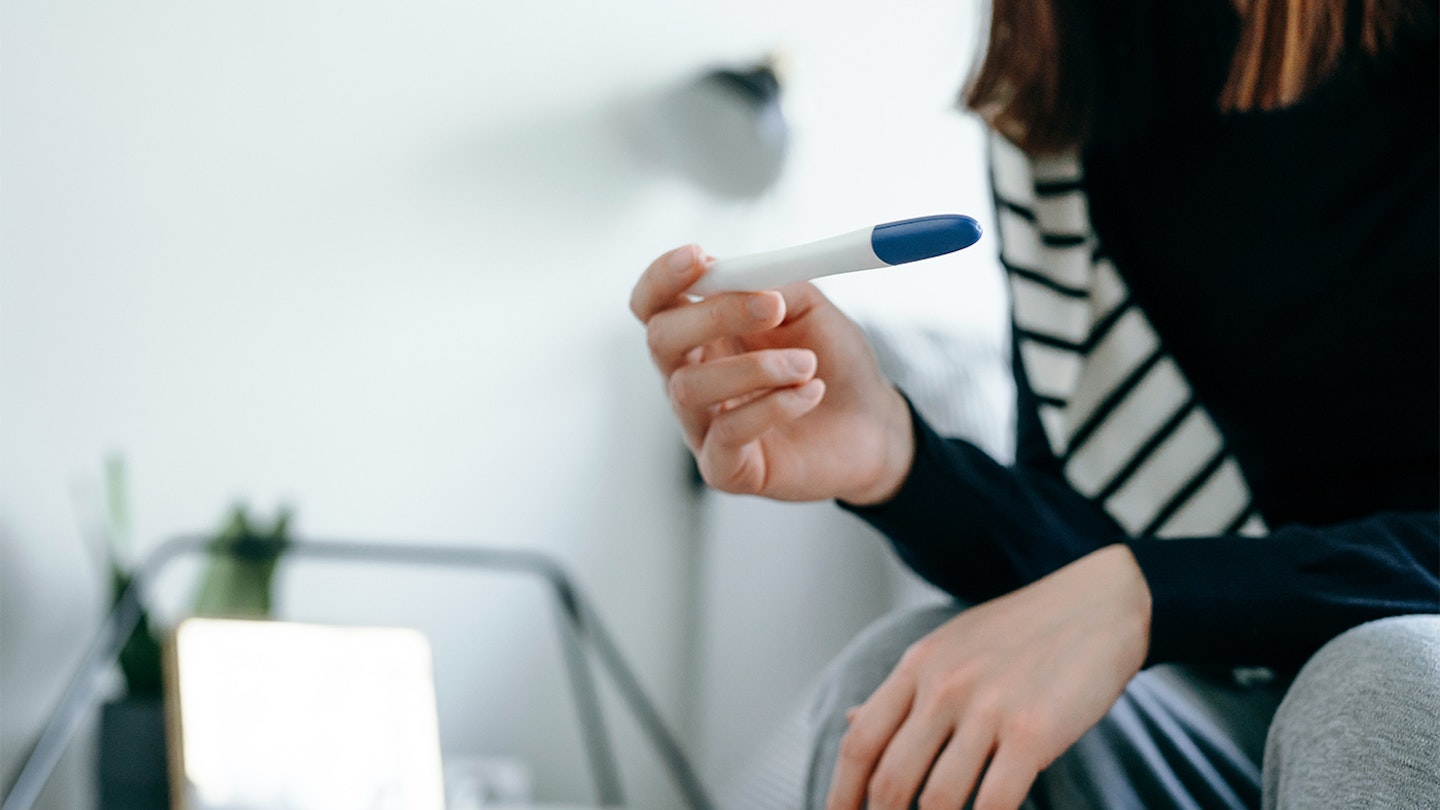
Medically Reviewed by: Dr. Tiffany Pham
We've always been led to think that a missed period equals pregnancy. So if you've had a negative pregnancy test but no period it's understandable that you might be feeling a little confused. Could it be a phantom pregnancy or a real pregnancy with a faulty pregnancy test? Or could there be something else going on?
If you're trying to conceive you might be asking if you can still be pregnant if the test is negative with no period. The answer is yes, there are a number of reasons why you could be pregnant with a negative test. But it's also important to look at the reasons why you might have no period with a negative test.
To help you understand what's happening, we've rounded up all the possible reasons why you might have no period but a negative pregnancy test.
1) Hormone levels
Sometimes, it's simply a case of user error and not taking a pregnancy test at the right time. This would mean there wasn't enough human chorionic gonadotropin (hCG) in your pee. This is one of the pregnancy hormones and if it's too early on in your pregnancy, the test might not be able to detect it yet. Some pregnancy tests can detect this at lower levels, earlier in your pregnancy but it might still be worth waiting a few more days then retesting, as the hCG levels will be higher if you're pregnant. You might also want to make sure you're using one of the best pregnancy tests on the market so you can have extra confidence in the result.
2) Anovulation
Anovulation is when an egg doesn't release from your ovary during your menstrual cycle. It mostly affects those with PCOS, girls who have only just started their periods and women in perimenopause. It can also affect those with a very low BMI. It's fairly common, affecting around 1 in 10 women of child bearing age at some point in their lives, however, if you think you're experiencing anovulation and you're trying to conceive, it's worth speaking to your GP.
3) Lifestyle factors
Whether your period is very late or just hasn't come at all this month, it doesn't necessarily mean you're pregnant. A number of lifestyle factors can put the brakes on your period including stress, weight loss and obesity. Have a think about whether you are under a lot of stress at the minute. Has your diet been impacted by this?
4) Breastfeeding
If you're still breastfeeding your baby, it can take several months for your periods to return after giving birth. This is because the hormone that causes us to lactate can also stop you from ovulating. Don't use this as a method of contraception however as you can still get pregnant while breastfeeding.
5) Polycystic Ovarian Syndrome (PCOS)
For those with PCOS, irregular periods are very common, making it much more difficult to get pregnant. If you have PCOS and you're trying to get pregnant, it's worth stocking up on cheaper pregnancy tests and testing regularly, just in case you happen to conceive naturally. It's also worth speaking to your GP about what options you have if you've been trying to get pregnant naturally for a while with no luck.
6) Thyroid problems
The thyroid gland plays a very important role in your reproductive health, directly affecting your ovaries. As the NHS notes, an underachieve thyroid can cause irregular periods, and if you suffer from severe thyroid disease, it can cause your periods to stop for several months or longer. In some cases, it can also cause heavy bleeding. If you suffer from thyroid disease and it's affecting your reproductive health, it's a good idea to speak with your GP.
7) Medication or birth control
If your birth control stops your periods or if you're regularly skipping periods, you may not be able to use a missed period as an indicator of pregnancy. However, if you start to experience early signs of pregnancy symptoms, take a home pregnancy test. It's not just birth control that can impact your periods, but other medication can too. If you've recently started some new medication and your periods have stopped, this could be the cause.
8) Menopause
Could you be experiencing signs of early menopause? Or perhaps it's the perimenopause? This is the transition to the menopause, and it's normal to experience irregular periods as well as hot flashes, vaginal dryness, low sex drive, fatigue and more. It could be worth speaking to your doctor if you're experiencing symptoms of the menopause. While it's an inevitable part of life for women, there are treatments available to help you cope with some of the symptoms.
What to do if your pregnancy test is negative, but your period is late
Firstly, wait a few days to a week and do another test, as you could be experiencing a false-negative result. In the meantime, you might want to consider all the factors above to help yourself rule out any possible causes. If your second pregnancy test is still negative, then book in to speak to your GP.
When to contact a doctor about missed periods
If you've had two months of missed periods and a negative pregnancy test, but a late period isn't normal for you, then it's a good idea to speak to your GP to identify any potential underlying causes. They can also talk to you about fertility if you're trying to get pregnant.
About the Expert
Dr Tiffany Pham
Dr Tiffany Pham is a board-certified obstetrician and gynaecologist and medical advisor for Flo Health, based in Houston, Texas. Pham is passionate about helping women get access to necessary health services and medically-accurate health information and better understand their bodies.
Lorna White is the Senior Digital Writer for Mother&Baby. After running the Yours magazine website, specialising in content about caring for kids and grandchildren, Lorna brought her expertise to Mother&Baby in 2020. She has a keen interest in a range of topics from potty training and nutrition to baby names and early development and has a wide range of experienced medical experts and professionals at her fingertips. In her spare time, she enjoys spending time with her two young sisters, dog walking and enjoying the outdoors with her family.
